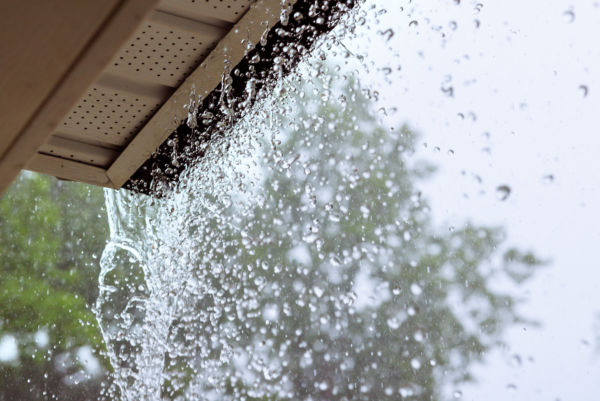Does Rain Affect Air Conditioners?
November 05, 2024

If you’ve ever wondered, “Does rain affect air conditioners?” you’re not alone. This is a common question among Florida homeowners.
In short, air conditioners are designed to withstand bad weather. After all, the condenser units are installed outdoors, where they're exposed to all sorts of conditions. However, while average rainfall isn't likely to be an issue, intense humidity and potential hurricanes in Southwest Florida can pose risks to AC units.
Fortunately, some maintenance and planning can help mitigate that risk. Keep reading to learn more about:
- How your AC is protected from normal rainfall
- The impact of heavy rainfall & humidity on your AC
- Signs of AC damage caused by rain
- AC maintenance tips for heavy rain and storms
Need Fast AC Repairs? Call Advanced Air: Fort Myers 5-Star Rated Team
Advanced Air is here to address all your AC repair needs, whether your air conditioner stopped working after a storm or isn't cooling your home as well as it used to. Our 100% satisfaction guarantee, paired with our fast and convenient scheduling, means we'll get your AC back up and running within 24 hours.
How Your AC Is Protected from Normal Rainfall
Does rain affect outdoor AC units? Yes and no. Your AC’s outdoor unit is built to withstand rain. All vulnerable electrical connections or parts are sealed away inside the unit, where rain won't usually reach it. In fact, some rain can actually be good for your unit since it can wash away leaves, dirt, and other grime that accumulates. That said, if your outdoor unit is impacted by heavy rainfall after a hurricane, for example, there is some risk of damage to the unit.
The Impact of Heavy Rainfall & Humidity on Your AC
While rain can damage outdoor AC units, heavy rainfall isn't much of a concern for outdoor units, as they're specifically designed to withstand it. The real threat comes from potential flooding due to heavy rain if water pools around it. If your AC is positioned in an area where water can accumulate and cause flooding, it may become submerged, leading to a potential short circuit.
Extended periods of high humidity can also cause moisture to accumulate. While moisture won't usually damage the electrical components, it can cause corrosion of the metal parts.
Likewise, when it's intensely humid out, your AC will have to work harder to cool down your home. This can cause more significant wear and tear on your unit compared to similar usage in a dryer climate. For this reason, twice-a-year AC maintenance is recommended, which we’ll explain in more detail below.
Signs of AC Damage Caused by Rain
Worried about your AC after a storm? A few signs can warn you that something went wrong during the last bout of severe weather, including:
- Physical damage to the unit: You may notice obvious damage to your AC unit, along with mud, debris, or corrosion.
- Your AC makes weird noises: If your unit is suddenly making strange noises after a storm, such as screeching, buzzing, or rattling sounds, it may be damaged.
- Your AC doesn't turn on: This is probably the most obvious sign something went wrong. A power surge may have triggered the circuit breaker. Try flipping the circuit and seeing if it comes back on. If not, you may need a pro to come inspect it.
- Your AC doesn't cool as well: Issues in nearly any part of your unit can cause reduced efficiency. Even worse, as efficiency reduces, it causes much higher electricity bills. You could even have a refrigerant leak that needs to be tended to by a professional.
- Water pooled around the unit: If you notice standing water collecting around your outdoor unit, it may have become submerged.
AC Maintenance Tips for Heavy Rain and Storms
The best way to prevent rain damage to your SW Florida AC unit is to enroll in an AC maintenance plan. Regular checkups from trained HVAC pros will help ensure everything is working safely and efficiently, preventing breakdowns during peak usage. Routine inspections also provide a chance to identify poor drainage around your unit. You may not realize that water is pooling around your unit, and you’ll need to divert it.
Additionally, make sure to change your air filters regularly throughout hurricane season, as dust and debris get kicked up with strong winds. If your air filters are clogged, your AC will work harder than normal to cool your home, potentially causing a breakdown. Also, after a storm, you should check on your outdoor unit and remove any debris that may have blown into the fan blades or coils that could cause issues later on.
Experience 5-star AC Repairs and Maintenance with Advanced Air
Since 1989, Advanced Air has been the trusted choice for homeowners in Southwest Florida, offering top-rated AC maintenance and repairs. Whether your AC has been damaged by flooding or you need a precision tune-up to ensure peak efficiency, we're here to help. Contact us today to schedule a visit from our friendly, honest, and highly-trained technicians. We’ll have your system running smoothly in no time!
- Posted in:
- Air Conditioning

